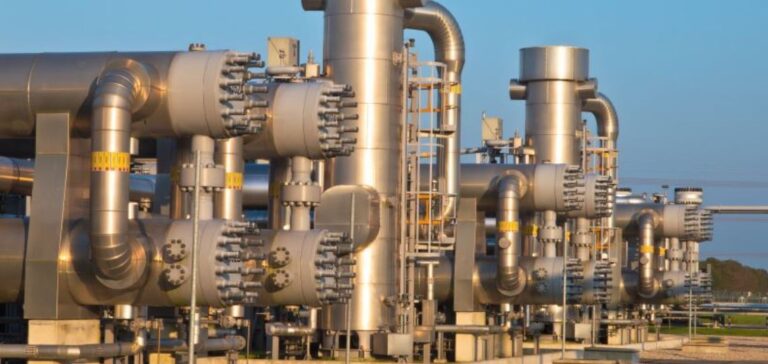The U.S. Department of Energy has no plans to develop a standard for natural gas certified as low greenhouse gas emissions, and is instead focusing on working with other countries to form a common approach to tracking emissions across the natural gas supply chain, a spokesperson for S&P Global Commodity Insights Agency said on July 21.
The DOE is working on a concerted approach to natural gas certification in the supply chain.
“DOE does not introduce or endorse any natural gas certification measures or standards, but rather works with natural gas importing and exporting countries to develop an agreed-upon approach to MMRV [measurement, monitoring, reporting and verification] that ensures consistency and accountability in the marketplace,” the DOE spokesperson said in an email in response to questions.
Certified gas, also known as differentiated gas or responsible sourcing gas, is natural gas production that has undergone third-party certification of its performance against certain environmental, social and governance parameters, with an emphasis on reducing methane emissions.
But the U.S. has yet to reach consensus on a single standard, and industry players have wondered in recent months whether the DOE would seek to develop one. The DOE’s comments came just days after the US issued a joint statement with Korea, Japan, Australia and the European Commission, pledging to accelerate the mitigation of methane from the LNG supply chain.
The DOE spokesperson said the MMRV agency’s work “focuses on applying minimum performance criteria, independent verification and transparency to the multitude of related initiatives by industry, NGOs and international governments to quantify emissions across the natural gas supply chain.”
DOE subsidies to reduce methane emissions: Technological advances in the US oil and gas industry.
In March, DOE representatives met with US gas industry and foreign representatives on the sidelines of CERAWeek, organized by S&P Global in Houston, to discuss a potential governance framework for certified gas. In the same month, the agency awarded approximately $47 million in grants for 22 projects aimed at advancing the development of technologies to detect, quantify and reduce methane emissions in oil- and gas-producing regions of the United States.
In April, the Department of the Environment also issued a request for information “on opportunities to reduce emissions of greenhouse gases and other pollutants” associated with U.S. LNG exports. “The opening has widened,” said Ben Cahill, Center for Strategic and International Studies senior fellow.
“Originally, people conceived of it and looked at it as a way of understanding certified gas. Now, I think there’s clearly a desire to look at gas and LNG supply chains, encompassing all these different parts of the value chains, so liquefaction and transportation, not just the domestic parts.”
International effort, The joint statement issued on July 18 expressed support for the creation of an “internationally harmonized voluntary approach” to emissions monitoring across the natural gas supply chain. Participating countries expressly stated their intention to encourage voluntary industry participation in efforts such as the Methane Partnership for Oil & Gas 2.0, and supported efforts to assess methane emissions from LNG projects. Korea and Japan also “expressed their support” for an effort launched on July 18 by Korea Gas Corporation and Japan’s JERA, called the Coalition for LNG Emission Abatement towards Net-zero, or CLEAN, in collaboration with LNG buyers and producers to reduce methane emissions in the LNG value chain.
U.S. gas industry divides opinion on certification, DOE rejects proposed standards.
American, Australian and European officials did not go that far, stating in the joint statement that they “recognize the establishment” of the program. Nearly 150 U.S. environmental groups had urged the DOE in a July 19 letter to “halt all efforts” to develop a certified gas standard, calling it a “dangerous detour” that the oil and gas industry uses to increase methane production and transport over the long term.
One of the groups leading the fightback against DOE, Oil Change International, described DOE’s statement to S&P Global as “the clearest statement we’ve seen yet that DOE will not set standards for U.S. certified gas.”
“We remain concerned, however, for MMRV’s potential to provide coverage and legitimacy to an industry that must aggressively be cleaned up and phased out,” the Lorne Stockman Group said on July 21.
U.S. operators have collectively certified nearly 30% of U.S. gas production using one or more of three main standards: the MiQ standard, Project Canary’s TrustWell standard and Equitable Origin’s EO100, according to S&P Global data. The Natural Gas Supply Association, a US trade group representing producer marketers, said on July 11 that it had taken no position on a possible DOE certified gas standard in the absence of consensus among members.
“Across the industry, some people are looking at this and still trying to make a decision,” Dena Wiggins, president of the NGSA, told a small group of journalists during an interview at the LNG2023 conference in Vancouver, Canada.
I think there are companies who believe that self-certification is the way forward, or that even if there is an entity that should be doing the certification, that’s not the DOE’s role to play.
“Everyone’s working on it, but how to get there is still a conversation,” Wiggins says.






















